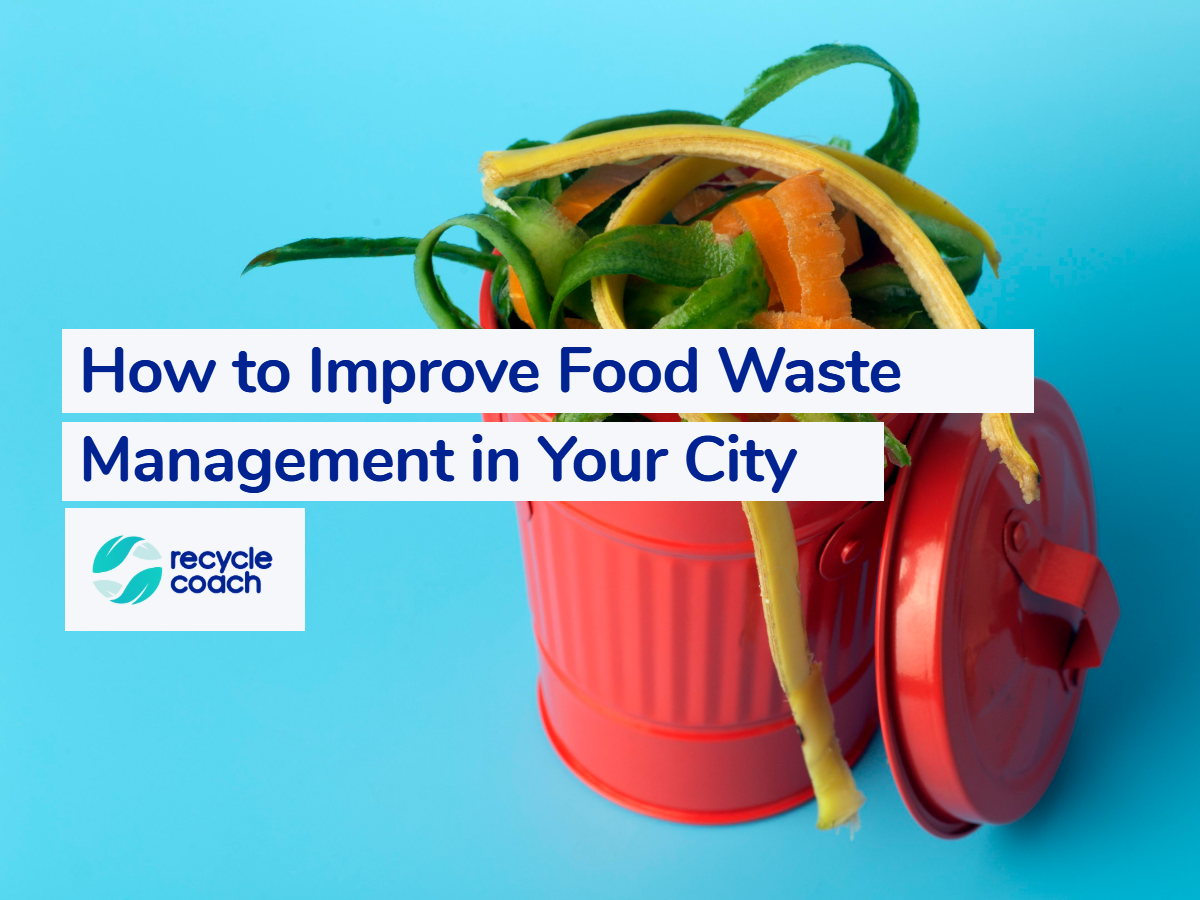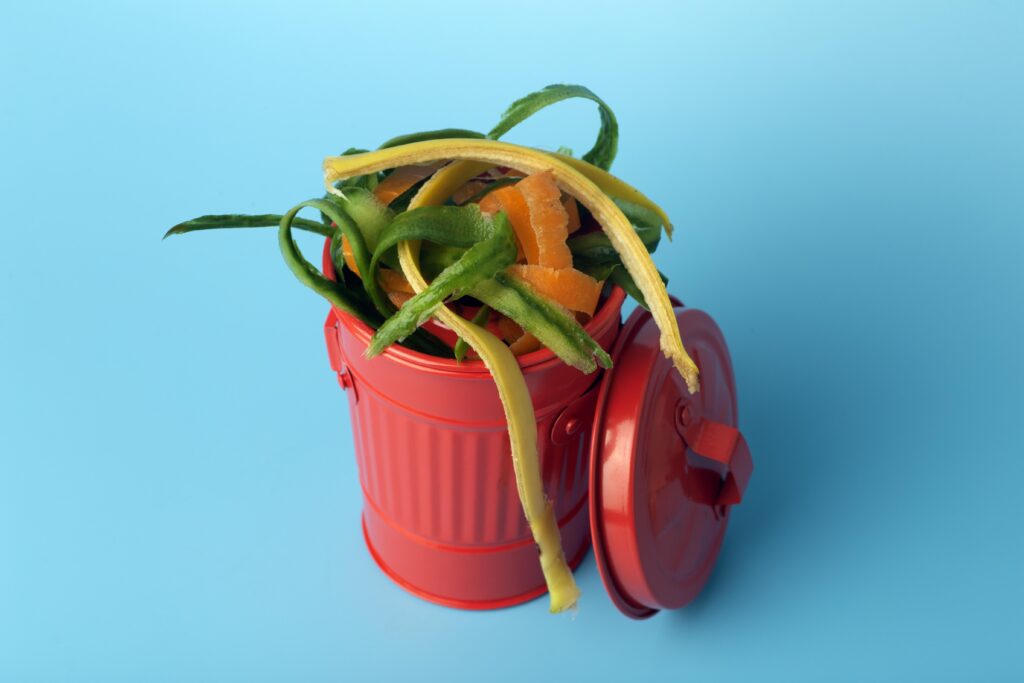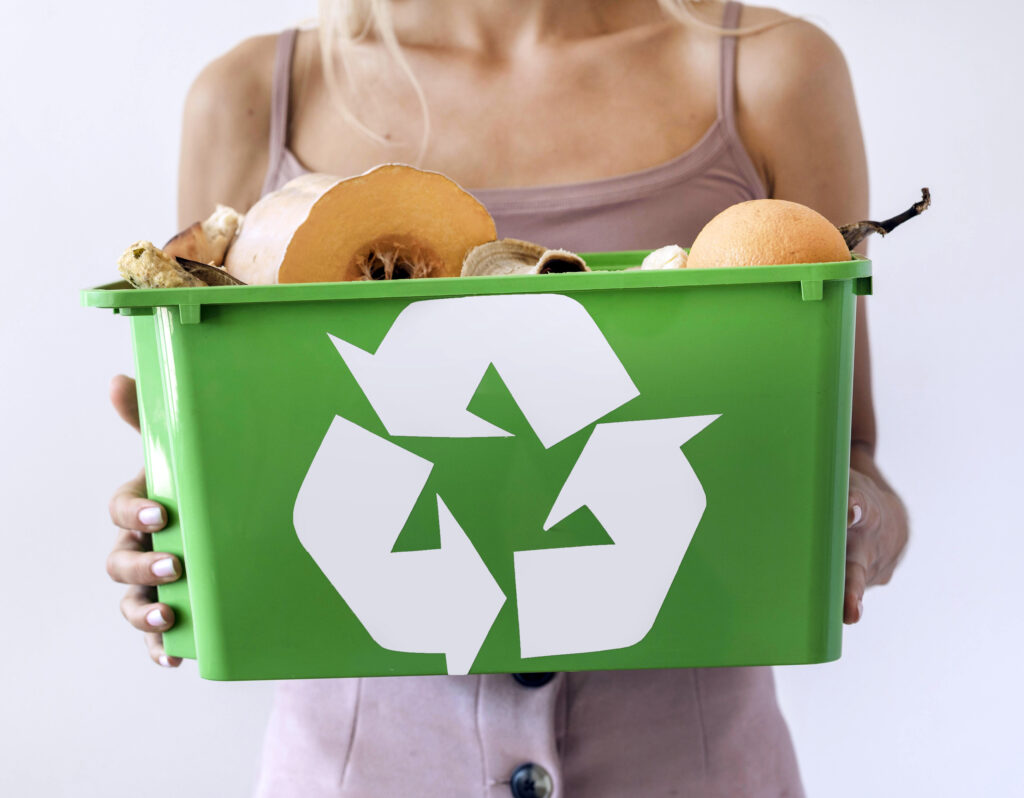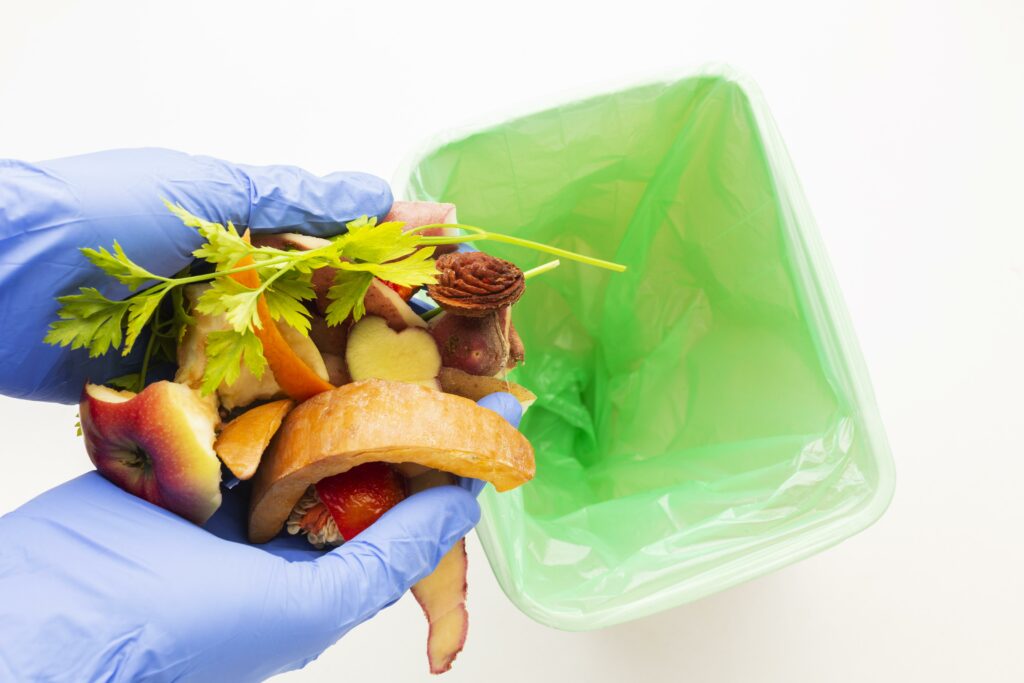How to Improve Food Waste Management in Your City

How much do your residents know about food waste management?
A third of all food produced, ends up as waste. This food finds its way to a landfill, where it gradually decomposes – giving off gasses that are harmful to your local environment. Residents and local businesses are mainly responsible for food waste, but a lot can be done to stem the tide.

Managing food waste in 2021 and beyond is going to take some creative thinking. We believe it’s entirely possible for your municipality to drastically reduce the food waste finding its way to your local landfill. It starts with you creating ways to help your residents recycle better.
Here is how to improve food waste management in your city this year.
#1: Reduce Food Waste Through Education
From farm, to fork, to landfill – America wastes about 40% of its food. This isn’t coincidental. It’s because there is a lack of awareness about what happens when perfectly good food is bought, only to be thrown away. Residents need to have gaps in their education about this, filled.
- What happens when residents throw away a lot of food?
Many of your residents won’t know what exactly happens to the food waste they throw away, or the impact it is having on their local environment. It’s up to you to communicate this to them – so that they understand buying less and composting at home are important behaviors.

The average household wastes 25% of the food they buy, and only 5% of households compost. If you can increase the rate of composting and reduce the rate of excess purchases – that means less waste in the long term. Release local food waste data, along with a goal to inspire residents to adopt healthier behaviors that benefit the environment and reduce the burden on your landfills.
- Do residents know that organic matter doesn’t decompose immediately at the landfill?
There is a common misperception that landfills are fine because organic matter (food waste) breaks down there – the same as it would in your backyard. This just isn’t true! Create an educational e-book or video campaign explaining to your residents why this is a false assumption.
- Organic matter doesn’t break down the same at the local landfill. Along with dozens of other types of materials stacked on top of this food waste, the matter is deprived of light and air. An anaerobic environment causes methane gas to be produced, and inhibits decomposition.
- Food waste takes much longer to decompose when at the landfill. Organic matter takes up about 40% of landfill space. Reducing food waste actively helps reduce greenhouse gasses and keeps the landfills from being too full.
Develop educational programs that teach your residents about personal responsibility and their role in minimizing the food waste crisis. Given the chance, most residents would happily help your city achieve its most ambitious food waste management goals.
#2: Use Collected Data to Impact Change
Every community has hotspots where food waste is most prevalent. Collect as much data as you can to determine where these hotspots occur in your city. Then rollout high-impact composting or educational programs there to reduce the food waste issue.

Data can be collected from waste management and recycling partners – and through new technologies that harness AI and Internet of Things tech. Test recycling programs or educational content on specific hotspot areas to understand how they will impact your local population.
With enough refinement and intelligent testing, you can harness the power of data to transform how your residential areas respond to the goals that you set, the information that you share, and the educational programs that you rollout.
#3: Recruit Community Champions
Food waste is an ongoing battle that you don’t have to fight alone. Your community is ready to get involved and help. Every community has individuals, organizations and companies that will join innovative programs to reduce food waste in your city.

Review the food waste reduction and composting programs that you currently have on offer. Host a local sustainability summit and invite relevant parties from the community to join. Make managing the city’s food waste a priority on your agenda, and ask for ideas on how to achieve your goals.
By involving the community, you connect with key players on the ground who will drive your agenda into the hearts and minds of your local residents.
If you need a platform for educational campaigns, and a way to connect all stakeholders – residents, businesses, community leaders and local government – it can all be done with Recycle Coach. Let’s reduce the burden of organic matter on our landfills this year.
Improve your food waste management when you implement these ideas, and get community buy-in from others who will support your goals.